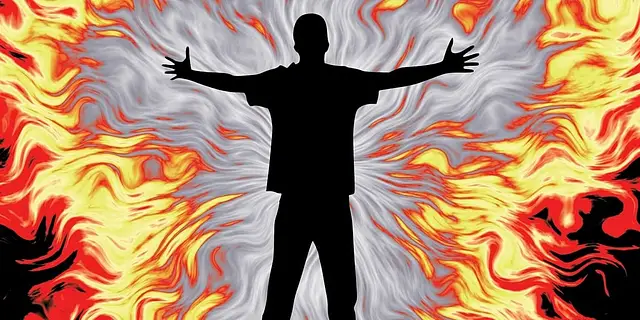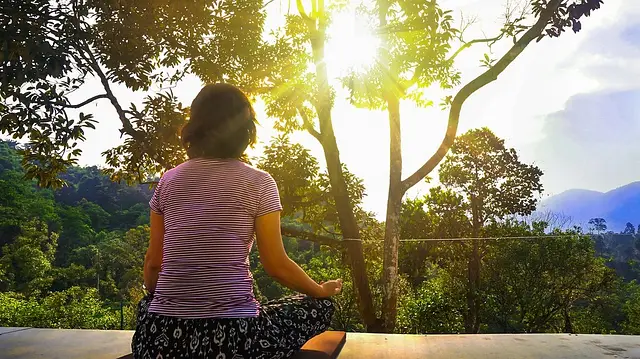COPING WITH INFORMATION OVERLOAD
“…a wealth of information creates a poverty of attention.”
– Herbert A. Simon
One of the effects of living with electric information is that we live habitually in a state of information overload. There’s always more than you can cope with.
– Marshall McLuhan
“Now you find capacity for dealing with the knowledge doesn’t keep up.”
– James Kraut

I wrote a song called “No Place to Run” in 1980 when I was working as a full-time musician, from which comes the above quote. It was written in response to anxiety I was experiencing about the state of the world, the ways in which its problems were being communicated and denied, and how we, the people, were ultimately unable to internalize it all in an adaptive way. My conclusion was that I couldn’t outrun the information coming at me, implying that no one else could either.
But think of it with knowledge of today: Information Overload in 1980! That was 45 years ago and much of information communication’s big power was not yet with us. In 1980, there was an absence of cellphones – never mind smartphones, email, social media and the rest of the internet. 23% of Americans had cable TV and they paid about $10 a month for it. John Lennon was still alive and Jimmy Carter was our president.
Yet, the troubling dynamics of information overload were indeed there. Private citizens were being deluged with anxiety-provoking, depressing information and expected to keep carrying on somehow. We had to try to store the troubling data someplace that didn’t interfere with the endless demands of living life. We worried about the energy crisis, the hostages in Iran, Monsanto poisoning us with Agent Orange and Roundup, the nuclear meltdown at Three Mile Island, and the worst economic downturn since the Great Depression, among other things.
But compared to today, it was a walk in the park! As we approach the middle of the 21st Century, our world has truly gotten out of control. As a result, we are now beginning to retreat en masse from media to save our sanity. Many people, myself included, are stepping way back from long trusted newspapers and magazines because the information in them is just too incendiary, too painful. There is a seemingly impossible dilemma: Do I want to know what’s happening, or do I want to be able to sleep?
We don’t do ourselves a favor by completely forfeiting our awareness of what is happening in the world at large. It isn’t safe to be unaware of what is around us. Nevertheless, it is literally dangerous to immerse ourselves in the never-ending dark, apocalyptic data currently coming at us. Whereas the copious internalization of current events used to be something we could handle, the news has become like a hot pepper: a teeny bit goes a long way. And the reason is because, like a pepper, the news is really going to burn you if you take in too much.
My suggestion is two-fold: Get the very basics of what’s going on so you can follow the story, which I believe is our responsibility as citizens. Then leave that scene and find the good! In the words of Sting, “When the world is running down, you make the best of what’s still around.”
Just as the presence of anxiety-provoking material leads to increased levels of cortisol and norepinephrine, the unhealthy stress hormones, being in the presence of good, wholesome things is healthy for us, physically, psychologically and spiritually. When the world outside of us appears to be literally falling apart, finding a way to internalize happy, calming things can literally be a lifesaver. And they are always there, inside and outside of us. It is a back and forth process that requires awareness of how we are responding to what we are taking in. So when we realize we are not responding well to some dire news we’ve just been exposed to, we consciously move to something lighter, happier, more soothingly optimistic. At those times, try to rediscover the beauty of nature, look at a photo album of your family, listen to a great piece of music that you love, watch a classic movie, call an old friend, do something that reminds you of the beautiful world that is still out there for you. Further, when we remember to recognize our painful responses to trouble and danger as common human reactions, not evidence of our being the world’s personal victims, it becomes easier to take.
Finally, it is critical to refrain from trying to figure it all out. We are not able to change the course of the United States Government by ourselves, so let’s not even try. When we get into the mindset of feeling the need to do that, burnout is very close ahead. If you find yourself trying to solve our country’s problems, let go of the effort as soon as you can and go on to something that soothes you. You deserve that. And keep in mind the advice of poet and environmentalist, Gary Snyder: If you want to try to save the planet, don’t do it with guilt; have fun with it!
At the same time, when thinking of the trouble out there, let’s resolve to engage in behaviors that contribute toward collective helping. to create the change. Together we can all do a lot, but individually, not so. It’s critical to find ways of helping that don’t take us beyond what we are and what we are capable of. This awareness-based action keeps us healthy and resilient. If we take personal responsibility for a mess that has millions of causes and conditions, we will get nowhere other than dire frustration. Instead, we do what we can, together, and we keep remembering the beautiful blessings right in front of us.

These changes are huge, difficult and necessary. Please book a free call if you’re moved to discuss it!
